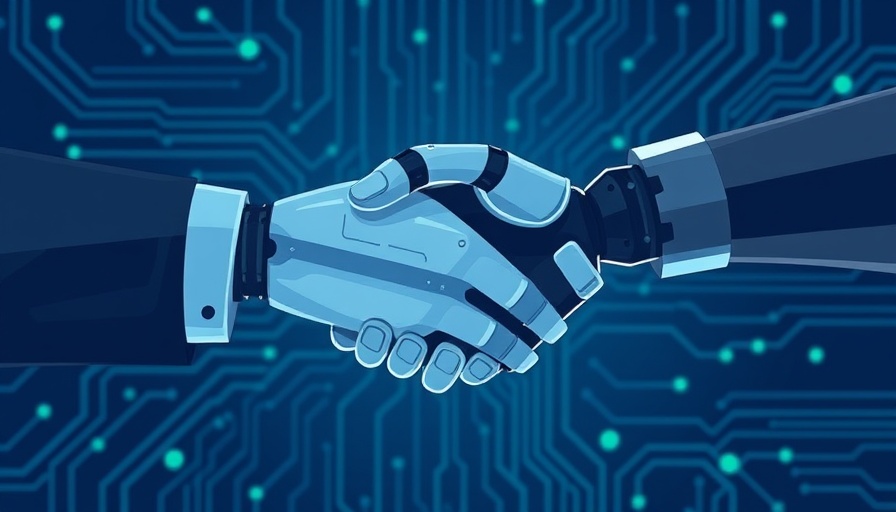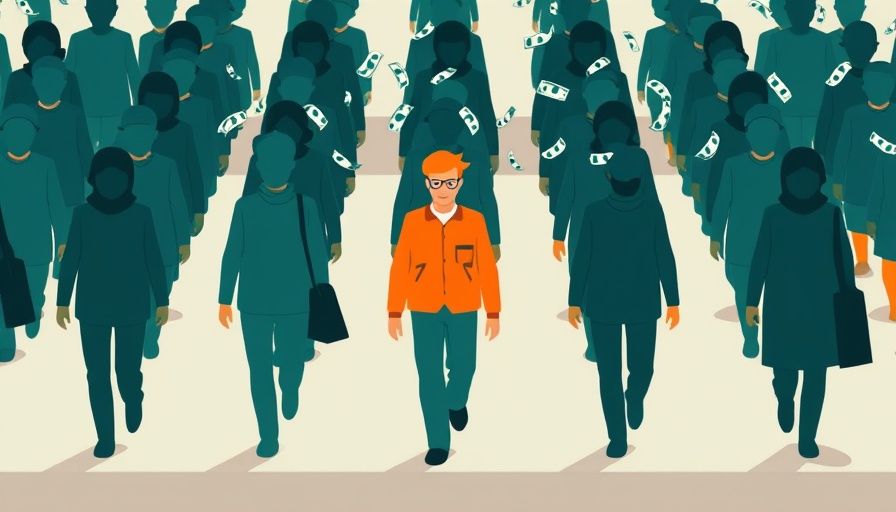
Building Trust in the AI Era: A Necessity for Progress
The recent HumanX conference in Las Vegas has ignited conversations about the future of artificial intelligence (AI), spotlighting a crucial element that could dictate its trajectory: trust. Feedzai's CEO, Nuno Sebastiao, and former US vice president Kamala Harris emphasized that establishing trust in AI is not merely beneficial; it's essential for the evolution of technology.
AI has the potential to radically change our lives—from reshaping industries to enhancing our daily routines. However, as these technologies mature, misgivings about their impact on jobs, privacy, and safety loom large. As Harris aptly pointed out, "It’s got to come from those who understand where the technology is going," emphasizing the human element in tech development.
The Role of AI Stewards: Navigating Innovation Responsibly
During the conference, discussions pivoted to a pivotal focus: the role of AI stewards, individuals who bear the responsibility of ensuring AI is developed safely and ethically. AI stewardship is not simply about technological advancement; it also involves integrating fairness, security, and accountability into the design process.
Harris articulated that society's reliance on AI requires responsible action from its creators. "We can and we must have both [safety and innovation]," she stated, urging us to put people at the center of technological transition.
Responsible AI Landscape (RAIL): Paving the Way for Ethical Practices
One of the standout initiatives from HumanX was the launch of the Responsible AI Landscape (RAIL), aimed at mapping organizations that prioritize ethical practices in AI development. As the AI landscape grows more complex, frameworks like RAIL are crucial in steering collective responsibility.
This would not only identify reliable AI practices but also amplify awareness of ethical innovations throughout the industry. The future of AI, as envisioned by forward-thinking organizations, rests on collaborative efforts to create technologies that serve humanity rather than undermine it.
The TRUST Framework: A Blueprint for Responsible AI
At the core of Feedzai's initiative is the TRUST framework, which encompasses five crucial pillars: Transparent, Robust, Unbiased, Secure, and Tested (TRUST). These characteristics are vital for those looking to foster responsible AI solutions that the public can trust.
By operating within such a framework, AI developers can assure users that their systems are designed not only for efficiency but also for ethical integrity. The framework not only serves as a guideline for best practices but also a promise to consumers that their welfare is a primary concern.
Current Trends and Future Predictions: The Path Ahead
The discourse around AI at HumanX reflects a broader shift in technology trends. Businesses and entrepreneurs are increasingly recognizing the importance of ethical AI, integrating social responsibility into their business models.
As we advance, predictions suggest that trustworthiness in AI will become a primary differentiator for companies. Startups and established organizations alike must adapt their strategies to align with consumer demands for transparency, fairness, and security.
Taking Action: Emphasizing Trust as a Market Differentiator
The insights shared at HumanX present a clarion call for businesses. AI developers and entrepreneurs need to embed trust at the heart of their operations. By committing to transparency and accountability and revitalizing consumer relationships with trust, businesses can foster a more robust market presence.
Ultimately, trust in AI could serve as an essential foundation for sustaining innovation, driving public engagement, and ensuring that technological advancements benefit society at large. The responsibility lies with all of us to ensure AI’s promise is realized ethically and equitably.
The journey toward responsible AI development is just beginning. Collectively, as stewards as well as consumers, we can influence the future. Your voice matters—stay informed and engaged in discussions about the technologies that shape our lives.
 Add Row
Add Row  Add
Add 




 Add Row
Add Row  Add
Add 








Write A Comment